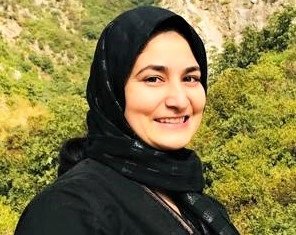by Roheena Ali Shah
The incident in Lahore, the capital city of Punjab, over the weekend where a woman faced harassment and life threats for wearing a dress with a message in Arabic script, “Life is beautiful” highlights several concerning issues prevalent in a segment of Pakistani society.

Firstly, it illustrates how conservative interpretations of religion can lead to intolerance and hostility towards individual freedoms, particularly regarding personal expression. The fact that a seemingly harmless fashion choice could escalate into a confrontation with extremism depicts the deep-seated issues surrounding religious conservatism.
It is deeply troubling that a bunch of misguided obscurantist segments resort to threats and violence to suppress freedom of expression. The essence of democracy and civil liberties lies in the ability of individuals to express themselves freely, without any fear of intimidation or persecution. When individuals are silenced through coercion and intimidation, the very foundations of democracy begin to crumble.
Furthermore, the response to the woman’s attire underscores the urgent need to defend individual liberties and confront religious extremism head-on. Threats and violence aimed at suppressing freedom of expression undermine the foundations of democracy and civil liberties.
Despite the darkness of the situation, there were positive elements, such as the intervention of law enforcement officials, particularly the timely act of ASI Syeda Shehrbano Naqvi, a policewoman officer, who demonstrated courage in protecting the woman’s life. However, this incident also highlights the broader societal changes needed to address extremism and intolerance comprehensively.
Relying solely on law enforcement to address instances of extremism and intolerance is insufficient. What is required is a multifaceted approach involving education, community outreach, and legal reform to challenge entrenched beliefs and promote a culture of tolerance and respect for diversity.
Holding those responsible for threats and violence to account is essential to uphold the rule of law and send a clear message that such behaviour will not be tolerated. The state apparatus must protect individuals from harm, irrespective of their beliefs or expressions.
Moreover, the misinterpretation of the Arabic script on the woman’s dress underscores the sensitivity surrounding religious symbols and expressions in Pakistan. This highlights the importance of promoting education and interfaith dialogue to foster greater societal understanding and tolerance. However, the misinterpretation of the script does not justify the threats and violence directed towards the woman.
Ultimately, this incident serves as a stark reminder of the ongoing struggle for individual freedoms and human rights in a society grappling with extremism and intolerance.
It calls for collective action to challenge oppressive ideologies and support those who dare to speak out against injustice, to build a more inclusive and tolerant society where all individuals are free to express themselves without fear.

Roheena Ali hails from Baltistan and is a premier Quaid-e-Azam University Islamabad graduate. She works on gender issues and contributes essays to the High Asia Herald writing essays and comment pieces on women and social issues.
